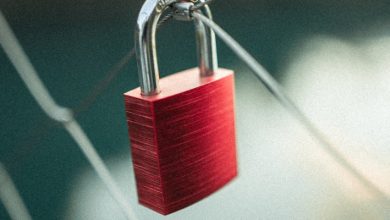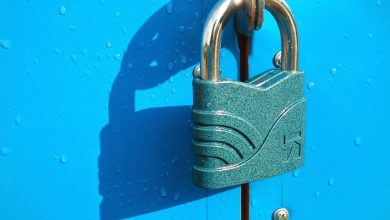How to Secure Your Crypto Wallet from Hackers

- Understanding the importance of securing your crypto wallet
- Common tactics used by hackers to target crypto wallets
- Best practices for creating a strong password for your crypto wallet
- Utilizing two-factor authentication to enhance wallet security
- Tips for safely storing your private keys to prevent hacking
- The role of hardware wallets in protecting your cryptocurrency assets
Understanding the importance of securing your crypto wallet
It is crucial to understand the significance of ensuring the security of your cryptocurrency wallet. With the rise in popularity of digital assets, hackers are constantly on the lookout for vulnerabilities to exploit and steal funds. By taking proactive measures to safeguard your wallet, you can protect your investments from unauthorized access and potential theft.
One of the most important steps in securing your crypto wallet is to use a strong and unique password. Avoid using easily guessable passwords or reusing passwords from other accounts, as this can make it easier for hackers to gain access to your wallet. Additionally, consider enabling two-factor authentication (2FA) for an added layer of security.
Another essential aspect of wallet security is to regularly update your wallet software. Developers frequently release updates that address security vulnerabilities and improve overall protection. By keeping your wallet up to date, you can reduce the risk of falling victim to known exploits.
Furthermore, it is advisable to store your crypto assets in a hardware wallet rather than keeping them on an exchange or an online wallet. Hardware wallets are offline devices that provide an extra layer of security by keeping your private keys offline and away from potential cyber threats.
In conclusion, understanding the importance of securing your crypto wallet is paramount in safeguarding your investments from malicious actors. By following best practices such as using strong passwords, enabling 2FA, updating your wallet software, and utilizing a hardware wallet, you can mitigate the risk of falling victim to hacking attempts and protect your digital assets.
Common tactics used by hackers to target crypto wallets
When it comes to securing your crypto wallet from hackers, it’s important to be aware of the common tactics they use to target unsuspecting users. By understanding these tactics, you can better protect your assets and minimize the risk of falling victim to malicious attacks.
One of the most common tactics used by hackers is phishing. This involves sending fraudulent emails or messages that appear to be from a legitimate source, such as a crypto exchange or wallet provider. These messages often contain links to fake websites that are designed to steal your login credentials or private keys.
Another tactic used by hackers is malware. Malicious software can infect your device and steal sensitive information, such as your wallet password or private keys. Hackers may use various methods to distribute malware, including infected downloads, fake mobile apps, or compromised websites.
Social engineering is another tactic that hackers use to manipulate users into revealing their sensitive information. This can involve tricking users into clicking on malicious links, sharing their private keys, or providing access to their wallet through deceptive means. It’s important to be cautious and skeptical of any unsolicited messages or requests for information.
Additionally, hackers may also exploit vulnerabilities in crypto wallets or exchanges to gain unauthorized access to user accounts. By keeping your wallet software up to date and using secure passwords, you can help protect your assets from these types of attacks.
Best practices for creating a strong password for your crypto wallet
When it comes to securing your crypto wallet from hackers, creating a strong password is crucial. Here are some best practices to help you ensure the safety of your funds:
- Use a combination of uppercase and lowercase letters, numbers, and special characters in your password.
- Avoid using easily guessable information such as your name, birthdate, or common words.
- Make sure your password is at least 12 characters long to increase its complexity.
- Consider using a passphrase instead of a single word for added security.
- Do not reuse passwords across different accounts to prevent a single breach compromising multiple accounts.
By following these best practices, you can significantly reduce the risk of unauthorized access to your crypto wallet and keep your funds safe from potential security threats.
Utilizing two-factor authentication to enhance wallet security
Another effective way to enhance the security of your crypto wallet is by utilizing two-factor authentication (2FA). 2FA adds an extra layer of security by requiring not only a password and username but also something that only the user has on them, such as a piece of information only they should know or have immediately to hand – like a physical token. This significantly reduces the chances of unauthorized access to your wallet, even if your password is compromised.
Tips for safely storing your private keys to prevent hacking
When it comes to securing your crypto wallet from hackers, safely storing your private keys is crucial. Here are some tips to help prevent hacking:
- Use a hardware wallet to store your private keys offline, disconnected from the internet.
- Consider using a secure password manager to store your private keys securely.
- Avoid storing your private keys on devices that are connected to the internet, such as your computer or smartphone.
- Use encryption to protect your private keys from unauthorized access.
- Make sure to regularly backup your private keys in a secure location, such as a safe deposit box.
By following these tips, you can help to keep your private keys safe and secure, reducing the risk of hacking and unauthorized access to your crypto wallet.
The role of hardware wallets in protecting your cryptocurrency assets
When it comes to securing your cryptocurrency assets, hardware wallets play a crucial role in providing an extra layer of protection against hackers. These physical devices store your private keys offline, making it extremely difficult for cyber attackers to gain unauthorized access to your funds.
Hardware wallets are designed to be tamper-proof, meaning that even if your computer or smartphone is compromised by malware, your cryptocurrency holdings remain safe. By keeping your private keys offline, you significantly reduce the risk of theft or hacking, giving you peace of mind when it comes to storing your digital assets.
Using a hardware wallet is simple and user-friendly, making it accessible to both novice and experienced cryptocurrency users. With features like secure PIN protection and backup and recovery options, you can rest assured that your funds are well-protected against potential security threats.
Overall, incorporating a hardware wallet into your cryptocurrency security strategy is a wise decision that can help safeguard your assets and prevent unauthorized access to your funds. By taking proactive steps to protect your investments, you can enjoy the benefits of the blockchain technology without worrying about the safety of your digital wealth.



